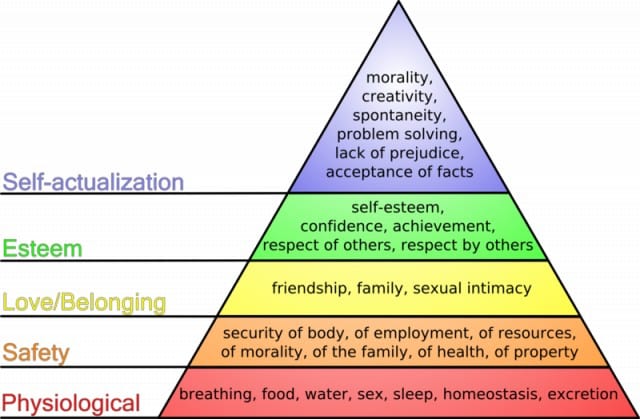God is not intelligent.
Or rather, God is not an intelligence. The distinction is significant. God is an abstraction, and a mystery.
What I mean is that, in my brand of pantheism, there is a spiritual basis to life, that there is spirituality permeating all things and this divine source is not an intelligence. It is just source, a spiritual source sans intelligence. So, to say it is intelligent or stupid presumes intelligence, and given that it is not, these descriptors are not applicable.
The simplest definition of Pantheism is that it is the belief that God is not a separate, personal being, but rather that God and the universe are the same. In this view, everything in the natural world is a part of God, and God is present in all things. I have taken this idea and put my own stamp on it, and for lack of a better term, pantheism is much closer to how I see the world, on a spiritual plane, than anything else. Always remember, to a pantheist, his 'God' is not a personal God, or a God in any sense of it's traditional and historical definition, mono or poly. It is more of a non falsifiable force that permeates all things, more or less.
Now, I cannot be so arrogant to presume these things as fact, so preface all that I write on the subject with 'in my opinion...it is my belief that.....'., noting that to assert this preface on everything I express about it would be cumbersome, so just assume it henceforth.
My God is not theistic nor deistic, it is more on the Einsteinian pantheistic model. It does not intervene or answer prayers, and without undermining prayer, because, in my view, true prayer is meditation and meditation is the fastest path to God. This God is our native state, it is our destiny, our natural heritage and all souls, like bubbles in in the ocean, are bubbling upward and will eventually reach the sky, it is inevitable. The only 'hell' is the misery we create for ourselves but it is not permanent. Through this 'hell' we are forged like one forges steel through a furnace. Trouble, difficulty, pain and misery and the like, are the means by which we grow. There are higher states where misery fades and earth's density hasn't reached it, though it has on other planets. Each of us will eventually evolve to higher densities and reincarnate on planets where there are highers densities, (no Martha, Humans are not the brightest bulb on the food chain) where life exists without pain and misery and each of us has this to look forward to. That is the extent of my 'faith'.
This divine source is welling up everywhere. For me, this is the only thing that makes sense and the nice thing about it it does not conflict with science and where it does agree with religion insofar as that it is taken on faith as it is not falsifiable.
This divine source is not a personal god, and there is no such thing as a personal god. This divine source permeates all things, is the source of all things, and resides at the center of the human soul, whereupon all living things are but tentacles on the octopus of god. But, where that metaphor breaks down is that an octopus is has intelligence, and God does not, as God is beyond intelligence and incomprehensible. This divine source does not exist in time and space, it is behind it, the source of it, beyond it, but reachable, nevertheless. Once achieved, once one returns to native state, life, as you have known it, becomes a moot point -- life becomes moot.
The only way to find God is to find oneself. It has been said, 'Know thyself, and the truth shall set you free'. Now, that quote can be attributed to someone or some thing, but I believe it is older than our planet and has been around for billions of years. No, it's just a hunch, sure, I could be wrong, probably am wrong.
Much of my philosophy is borrowed from ancient eastern philosophy and a few modern mystics, sages.
All of them teach reincarnation, and I take reincarnation on faith, as well, not to mention there is some evidence for it. It is also logical to me.
When we die, our essential selves, our souls, noting that "I' and the 'soul' are the same thing, we do not perish. Death is an illusion and we are eternal.
The basic premise of eastern philosophy is that you keep coming back, you grow spiritually a little bit with each life, and this continues for however long it takes for the individual, the soul, to reach the Godhead, AKA 'self-realization', 'samadhi', 'nirvana' or 'heaven' or whatever term endears one the most. It has been said by most of these mystics that one can accelerate the process via meditation, or the modern term now is 'mindfulness' techniques. I also believe that during the first century or first few centuries when Christianity was coagulating and forming into various factions and struggling to achieve something, the Gnostic Christians believed that Christ had a secret, esoteric teaching and that teaching was more in tune with eastern philosophical concepts, accepted reincarnation, and it was Orthodoxy which deviated from Christ, whereupon they cherry picked his teachings to conform to that which would empower the political power of the church.
This is my faith, this is what I believe. I just thought I would share these ideas with anyone who cares to read them, and/or dispute or be amused by them.
As a side, but related, note; In in the context of non-zero probability, assuming infinity, abstract or real, all that is possible, is inevitable. (See if you can falsify that one). Life is possible, this much we know, and infinity, in terms of non-zero probability, if it is possible, it will occur, eventually, though not assured at any point. Thus we have life. So, in a sense, it is infinity that is the mother of all that is possible. Now, some things are impossible. Anyway, compared to infinity, all that is finite is infinitesimal. That is why all arguments that go 'there are too many gazillions of factors to be aligned in space for anything to happen by chance (the argument for 'intelligent design'), are specious logic'.
Thanks for reading.




